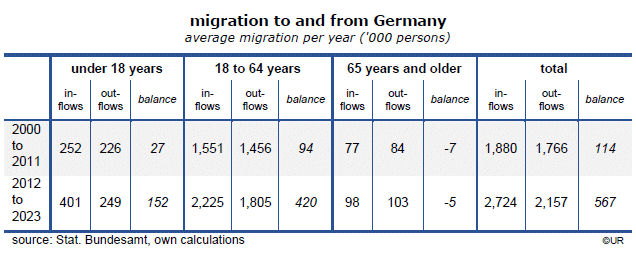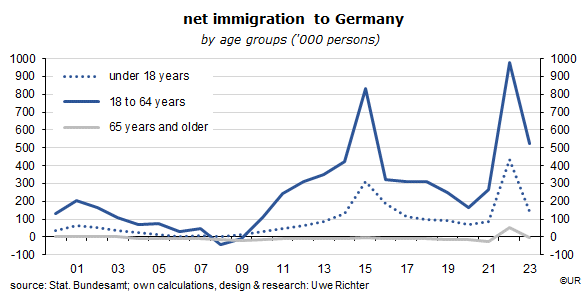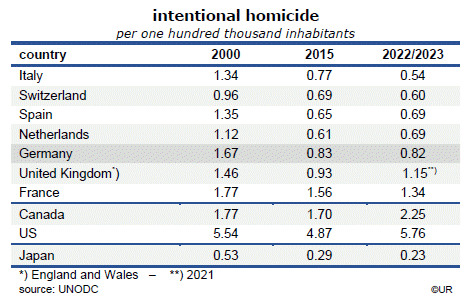
Market Commentary: German election – immigration is not a problem but part of the solution
Germany, with its fast-aging population, urgently needs about one million immigrants annually, or, on a net basis, almost half a million. Otherwise, the workforce will be overwhelmed by rising contributions to the social security systems, and it would be hard to maintain or to improve their standard of living. But as it is there are plenty of foreigners who’d love to come with their families, settle and join the labor market. While immigration is not the only means to stabilize the social contract between young and old, it is an important element, in combination, of course, with a stimulation of economic growth, raising the size and quality of the physical and human capital stock as well as a further increase – on a voluntary basis – of the effective retirement age and the labor force participation rate of women.
Most analysts come to the conclusion that the country needs a net immigration of about 400,000 annually. To stabilize the so-called labor force or, even more importantly, to increase its size, the composition of the inflow by age is key. The number about net immigration says nothing about the age of the people who come and go across the borders.

To put it simply, young people are entering, old people are leaving (to Mallorca, Andalusia and Florida where the weather is better, or to their original home countries). No one can object to that. Immigration reduces the average age of the workforce and makes the economy more dynamic

Immigration must be regarded as a huge advantage, not a problem, but society must do much more to speed up integration. From an economic perspective, such spending is comparable to spending on education, or an investment in human capital, and should not be limited by the counterproductive debt brake. New debt which generates rising incomes is a good kind of debt.
That many Germans are afraid of foreigners these day is not really surprising given the prominence of the immigration issue in the campaign for the federal election which takes place on February 23. In an irresponsible manner, politicians of the center and the far right of the spectrum instrumentalize the murders that have recently been committed by men with an immigration background. But according to official statistics the number of acts of violence by these people is not larger than that of the “natives”, ie, those with a German passport.

As in the past, violent crimes can best be prevented by more effective police work and a determined application of existing laws, not by closing the borders and putting a de facto end to the European unification process.
About Wermuth Asset Management
Wermuth Asset Management (WAM) is a Family Office which also acts as a BAFIN-regulated investment consultant.
The company specializes in climate impact investments across all asset classes, with a focus on EU “exponential organizations” as defined by Singularity University, i.e., companies which solve a major problem of humanity profitably and can grow exponentially. Through private equity, listed assets, infrastructure and real assets, the company invests through its own funds and third-party funds. WAM adheres to the UN Principles of Responsible Investing (UNPRI) and UN Compact and is a member of the Institutional Investor Group on Climate Change (IIGCC), the Global Impact Investing Network (GIIN) and the Divest-Invest Movement.
Jochen Wermuth founded WAM in 1999. He is a German climate impact investor who served on the steering committee of “Europeans for Divest Invest”. As of June 2017, he was also a member of the investment strategy committee for the EUR 24 billion German Sovereign Wealth Fund (KENFO).
Legal Disclaimer
The information contained in this document is for informational purposes only and does not constitute investment advice. The opinions and valuations contained in this document are subject to change and reflect the viewpoint of Wermuth Asset Management in the current economic environment. No liability is assumed for the accuracy and completeness of the information. Past performance is not a reliable indication of current or future developments. The financial instruments mentioned are for illustrative purposes only and should not be construed as a direct offer or investment recommendation or advice. The securities listed have been selected from the universe of securities covered by the portfolio managers to assist the reader in better understanding the issues presented and do not necessarily form part of any portfolio or constitute recommendations by the portfolio managers. There is no guarantee that forecasts will occur.
Read the full article in PDF format here: English.